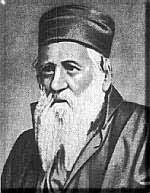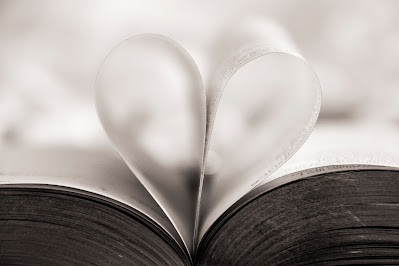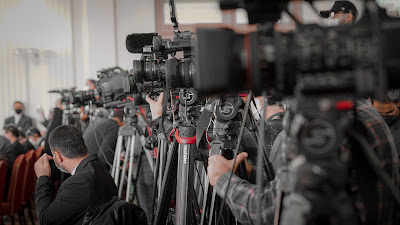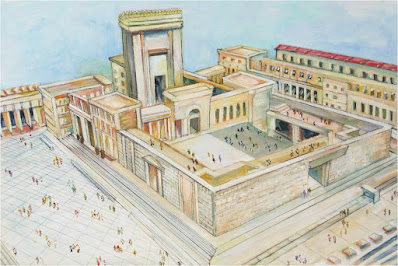by Rav Yosef Carmel, yeshiva.co, translated by Hillel Fendel
Weekly Torah insights in the spirit of the teachings of Rav Kook, including video divrei Torah, Parshat HaShavua, Ask the Rabbi Q&As, and short clips of filmed classes
Thursday, August 25, 2022
Thursday, August 18, 2022
Ekev: The Mitzvah of Learning Hebrew
by Rabbi Moshe Ehrenreich, yeshiva.co, translated by Hillel Fendel
This week's Torah portion, Ekev (Deut. 7,12-11,26), features the second passage of our daily Kriyat Shema passage, which states: "You shall teach [the words of Torah] to your children, to speak of them, when you are at home and when you are on the way and when you lie down and when you get up" (ibid. 11,19).
Rashi cites the Midrash Sifri to this verse:
Thursday, August 11, 2022
VaEt'hanan: The Land of Israel Hidden in the 10 Commandments
by Rav Moshe Tzuriel, translated by Hillel Fendel
If all 613 commandments are included in the Ten Commandments ... where is the Land of Israel?
Tu B'Av: The Torah's Understanding of Love
by Rav Eli Scheinfeld, translated by Hillel Fendel
So much has been written over the course of history about the always-fascinating topic of Love. It encompasses many aspects of our lives, whether between parents and children, between G-d and mankind, between man and woman, or just simply various experiences in which we "love" to engage.
The Torah tells us to "love your friend as yourself" and to "love Hashem your G-d." It also relates that Yitzchak loved his wife Rivka, and that the two of them loved each of their sons, respectively. Yet, there is still much room to clarify what precisely is the Torah's approach to this issue.
Thursday, August 4, 2022
Tisha B'Av: Unleash the Torah's Shackles!
by Rav Netanel Yosifun, yeshiva.co.il, translated by Hillel Fendel
The fast of Tisha B'Av is approaching, and once again, it arouses within us very unpleasant sensations. The Sages taught that "debits [~ bad things] are 'rolled over' to days of indebtedness [~ bad days]" – and in fact, many calamities and troubles have happened on this day of the Ninth of Av.
And among the holy Jews, too, it appears that every individual connects to a different aspect of the general destruction – and there are many of them. One cries over the exile of the Jewish Nation from its land, while another moans over the destruction of the Holy Temple. One's heart is broken when he remembers the burning of the Torah, and his friend trembles at hearing of the horrors of the hunger and the travesties of the siege. One remembers the Crusades, another the Spanish Inquisition culminating in the Expulsion, and a third remembers the destruction of and expulsion from Gush Katif. Each Jew and his kinot (Tisha B'Av dirges)...
The source of all, however, is the destruction of the Holy Temple, and the rectification for all is its rebuilding. Everyone feels its lack in the way that touches him the most.
It is interesting that one particular deficiency humbly hid itself for many generations among the other things we lacked, finding its expression chiefly in allusions of the Sages of the Kabbalah. However, in our times, it appears to be peeking out and budding forth, gradually becoming a bitter, silent, but great cry.
The wise men of the secrets of the Torah arise at midnight to weep over the destruction as they recite the Tikkun Hatzot prayer, and in truth they focus in on one point: They cry over what Rav Kook calls "the giving over of the deepest secrets of the Torah to outside forces." The Torah parchments are burned, their letters fly off and upwards, and the Torah is simply not read and understood clearly among the people. Most people might feel that this is a great lack only for the most holy tzaddikim – but if we delve slightly deeper, we will find that each of us greatly feels this lack. To what am I referring?
We like to discuss and debate. So many symposiums and discussions are held in our nation on so many issues, some in public and some in private. The press, of course, loves to fuel these events, especially the discordant parts thereof; it is their bread and butter. All day long we hear many different angles of many different issues. Though some will say that we get to hear one side more than the other, we certainly know that each side gets to say its piece. What then is the problem?
The problem is not in how much coverage each side gets, but rather what questions are being discussed! What issues are on the public agenda? Individuals lucky enough to be in key media positions are the ones to decide these critical questions; they decide what's in the public interest to know, and what is less so. Thus, certain issues are not even brought up for debate!
Furthermore, even within the debates and discussions, there are generally many points that must be raised – but as we know, the journalists are often "running out of time," and therefore will choose only the angle they like. For instance, after a terrorist attack, they will often discuss exactly where the perpetrators entered, and they will quote the military figures promising to bring them to justice – but why don't they discuss the essential reasons for the enemies' hatred of us? Why don't they ask, "What profound steps – not necessarily military – must be taken in order to end the attacks?" By avoiding these issues, the debates and discussions lack true significance.
Our holy Torah has deep and important things to say, which have the ability to cure the national and individual crises we face. However, those who can bring these important messages are often silenced and muted, and thus the debates do not even truly begin.
I recall once speaking to a secular army buddy, and raising the possibility that a particular Torah scholar might be an appropriate candidate for Prime Minister. He looked at me in wonderment and said, "In the present climate, he has no chance in the world!" I then thought bitterly about the fact that the political atmosphere does not allow for men of true Torah vision to disseminate their ideas.
And thus, the letters of the Torah fly upwards, but here on Earth, they cannot be fully expressed. The Torah's hidden aspects remain hidden; the ability to reveal them is only in the hands of "outside" forces.
Similarly, when the Temple was destroyed, the Divine Presence left the Land, and the Torah was put on "mute." This, then, is what we're crying about on Tisha B'Av: that too often, when we feel an urge to share the greatness of Torah – no one listens because no one is permitted to say it. This is the tragedy of the destruction of Jerusalem!
This year, the date of the 9th of Av falls on Shabbat Hazon (trans. Sabbath of vision), while the fast itself is postponed until the day after. Let us pray that the Torah will be freed from its prison of silence, and the vision will once again be sounded and heard in completion – and the Redeemer will come to Zion!
Devarim: Making Aliyah Is a Matter of Willpower
by Rav Yosef Naveh, yeshiva.co.il, translated by Hillel Fendel
In this week's Torah portion, which we read every year just before the fast of Tisha B'Av, Moshe Rabbeinu reminds Israel that they "didn't want to" enter the Land of Israel, following the Sin of the Spies. Bnei Yisrael did not see it that way: "How can we go up [to the Land]?" they said, as if to say that it was not within their ability to do so.
It is told about the famous Reb Zusha that he was traveling with a Gentile wagon driver when suddenly the wagon, filled with hay, overturned. The Gentile asked Reb Zusha if he could help him gather the hay, and Reb Zusha replied, "I'm so sorry, but I cannot." The goy said, "You certainly can, but you just don't want to."






